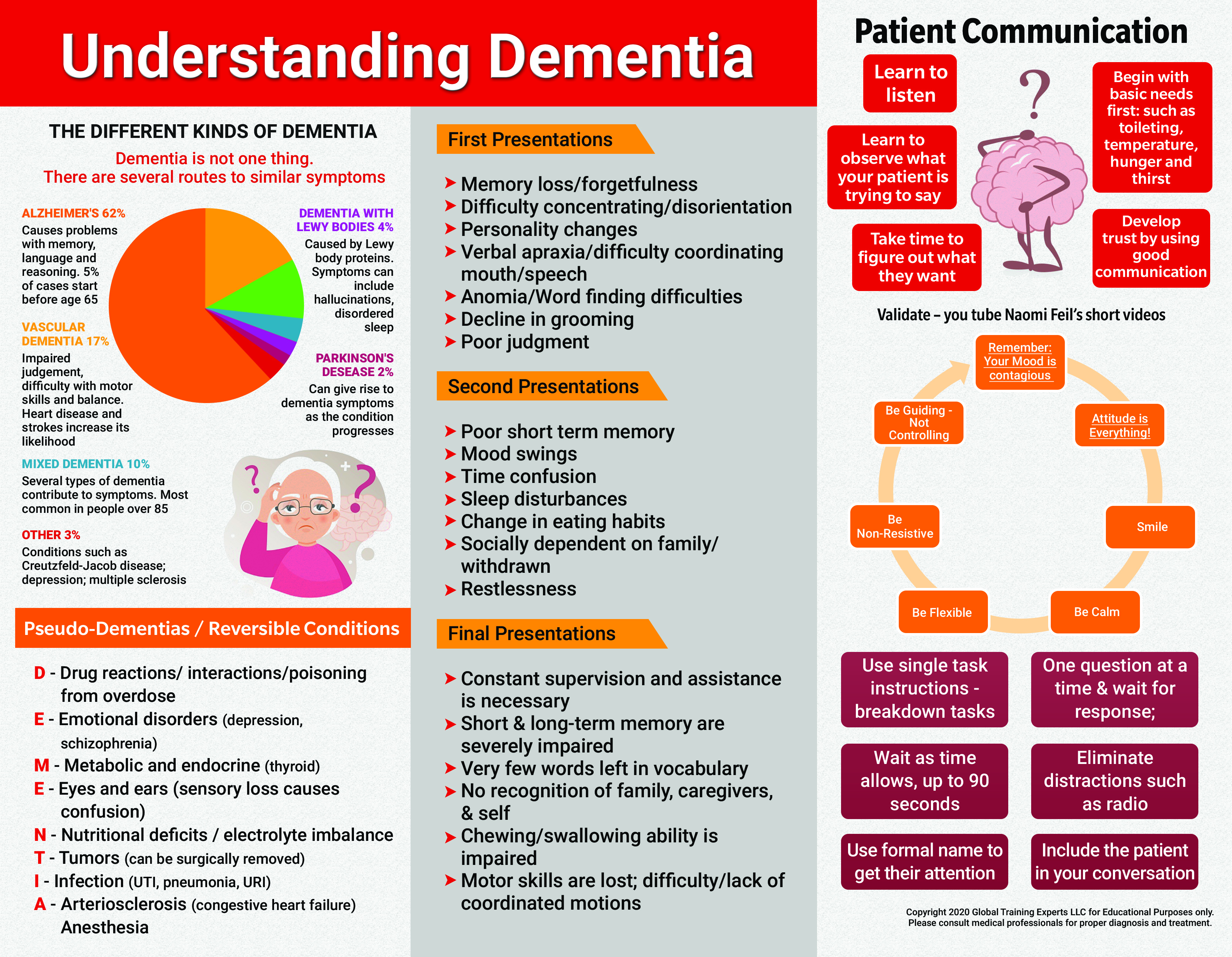When To Seek Dementia or Alzheimer’s Care For Your Loved One
 Taking care of seniors can be challenging. It could even take a toll on your health and wellness as it will require a lot of time, effort, and resources. The challenge of taking good care of your senior loved ones can further increase, especially if they are diagnosed with Alzheimer's Disease or any other form of dementia. This is why it has become common today for families to have assistance from facilities like assisted living homes and senior care institutions.
Taking care of seniors can be challenging. It could even take a toll on your health and wellness as it will require a lot of time, effort, and resources. The challenge of taking good care of your senior loved ones can further increase, especially if they are diagnosed with Alzheimer's Disease or any other form of dementia. This is why it has become common today for families to have assistance from facilities like assisted living homes and senior care institutions.But, with this at hand, when would you know if it is really now the time to acquire such help and care outside the family?
Before we dig in deeper, you need to understand first the situation they are in and the condition that they have. Are they diagnosed with Dementia? Is it Alzheimer's Disease? What is the difference between the two?
Learning these points will help you effectively know when is the right time to seek care outside.
Introduction To Dementia
Dementia is a syndrome that has been affecting mainly the senior citizens of society. Every year, 10 million new cases add up to the total number. So far, over 50 million individuals have been diagnosed with dementia.
While the disease has become common for older people, experts noted that having dementia, or any other form of the disease, is not a normal part of aging. Accordingly, this only goes to show that dementia, whether chronic or progressive, can be effectively prevented.
The apparent dependency and disability of many old aged people are the main effects of dementia. This is because it is a syndrome wherein the cognitive functions of the brain deteriorate. These functions include memory, comprehension, behavior, judgment, orientation, and learning ability.
Alzheimer's Disease is a progressive disorder. It causes the brain cells to degenerate, which eventually causes them to die. This is why a continuous decline in several cognitive functions happens when diagnosed with AD.
The disorder is deemed to be the most common form or type of Dementia. In fact, Alzheimer's Disease accounts for 80 percent of people who are diagnosed with the syndrome. Therefore, there is a huge difference between the two.
Today, there is no known cure yet for Alzheimer's mainly because the cause of the disease is yet to be discovered as well. Nevertheless, studies and research suggest that the formation of the beta-amyloid plaques and tau tangles have been very apparent to people who have the disease.
Difference Between Alzheimer’s Disease and Dementia
Alzheimer's Disease and Dementia are two different conditions. While AD is a disease, Dementia is not, as it is a syndrome.
Keep in mind that syndrome is a group of symptoms that does not have any diagnosis. So, when a person has Alzheimer's Disease, this causes Dementia. Conversely, when a person is diagnosed with Dementia, the cause is necessarily Alzheimer's Disease.
To make it much simpler, AD is simply a type or form of Dementia. The symptoms of the two conditions may overlap. But, it is worth noting that there are differences as well.
Alzheimer's Disease and Dementia may both cause memory impairment, learning disability, and communication impairment. In short, an apparent decline in cognitive functions.
For people who are diagnosed with Alzheimer's, the symptoms may include the following:
- Apathy
- Depression
- Disorientation
- Confusion
- Hallucinations
- Change in behavior
- Difficulty in remembering events and conversations
- Difficulty in speaking and communication
- Difficulty in walking and swallowing
- Paranoia
Unfortunately, no cure has been found yet for both conditions. But, treatments and medications are available to treat and manage the symptoms, as well as the rate of the progression.
Going Into Care: When Patients Should Go
Moving elderly individuals into an assisted living facility is difficult. It is not a simple matter that family members can immediately decide. The truth is - the decision making takes time and serious considerations.
But, here are some points that you may want to check to see if you already need to move parents or loved ones into a care facility that will take good care of their needs. And these things apply to both individuals who have Alzheimer's Disease and Dementia.
- Escalating Care Needs Taking good care of seniors in your family who have Dementia or any of its form is a great thing. However, it is definitely exhausting, challenging, and even daunting. If the care that you are providing can no longer suffice their needs in terms of care and management, then it might be already time to move them into a much more fitting community or surrounding.
- Aggression Aggression is a definite sign that there is already a need for the person with AD or Dementia to move into an assisted living facility. Whether the aggression is physical or sexual, it is already time for them to receive the right care that is beyond your resources. It is worth noting that aggression is very common for people who are living with Alzheimer's and Dementia, especially when the condition is already in the latter stages.
- Excessive or Increased Caregiver Stress If you are taking care of a senior who is diagnosed with either of the conditions given above, and you feel that both your health conditions are already suffering in the process, then it is already time to acquire help from outside of the family.
Final Thoughts
It is truly challenging to decide whether your parents or loved ones already need senior care and assisted living outside the family. There is no doubt about it as almost every family comes to this point. But, keep in mind that having them get into the right care and management is just for the better, for your sake and theirs too. So, be sure to know when is the right time to get them into such care.
These points and guides given will certainly help you with your decision. But, of course, ensure that you talk it out as well with the rest of the people involved in the situation.
About The Author
Holly Klamer is a writer for Memory Care Facilities.
Free Brochure
By Mail
Or call us at
1-855-272-1010


